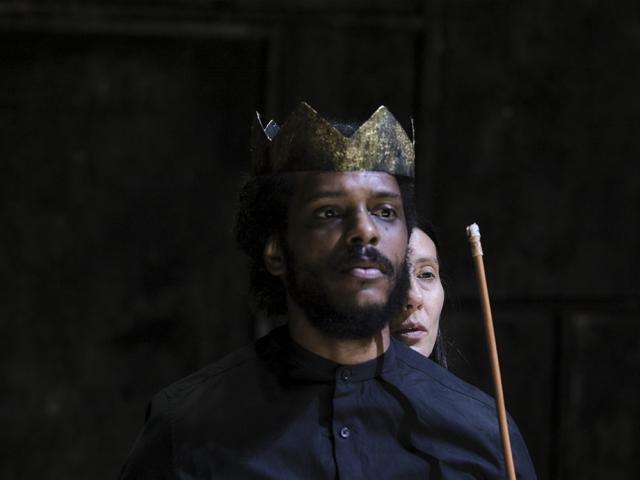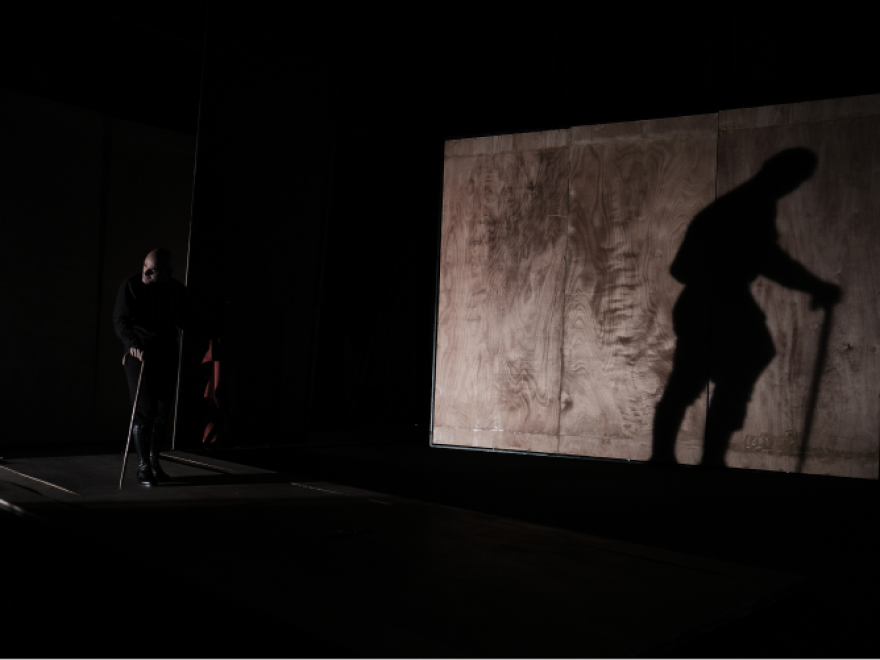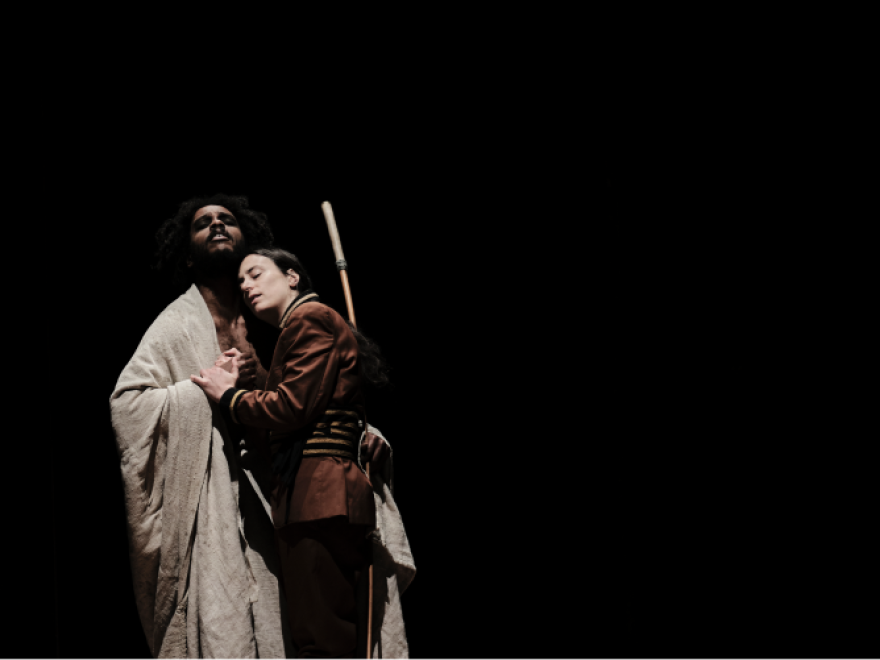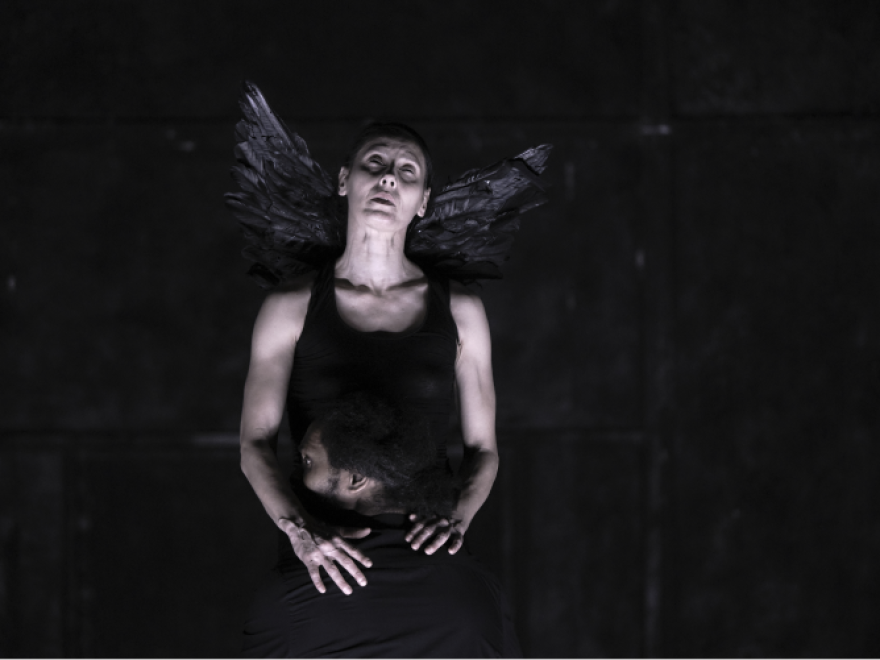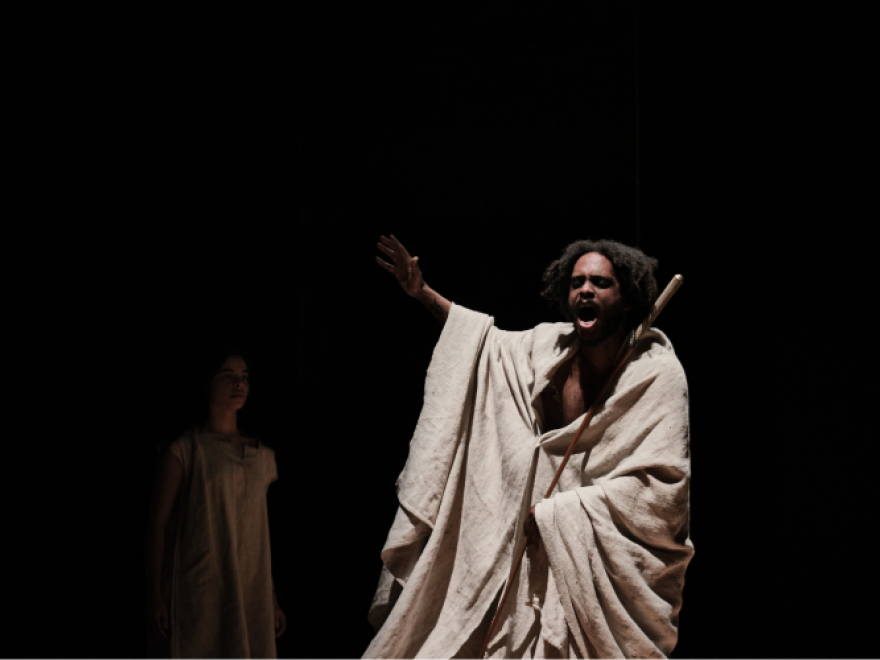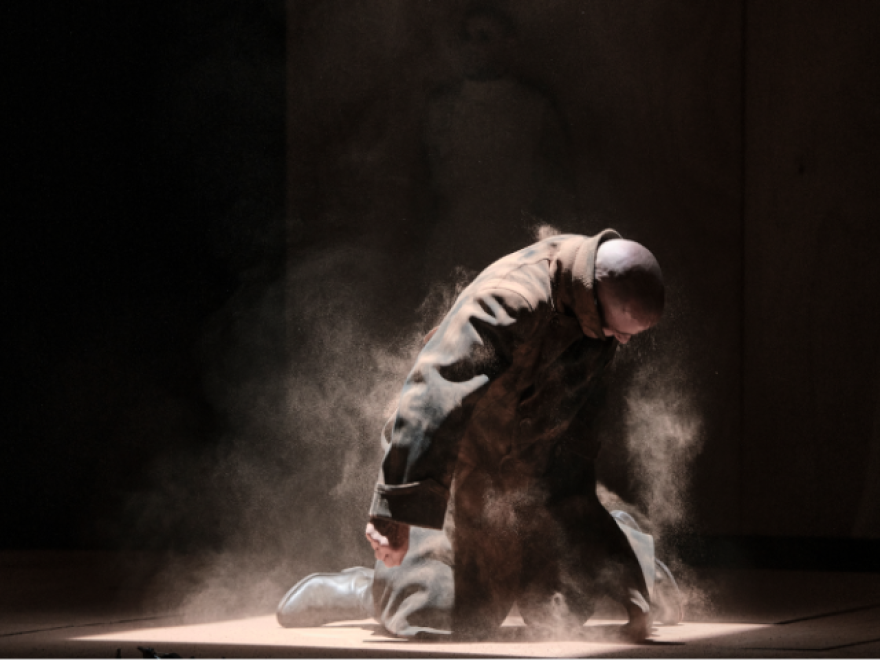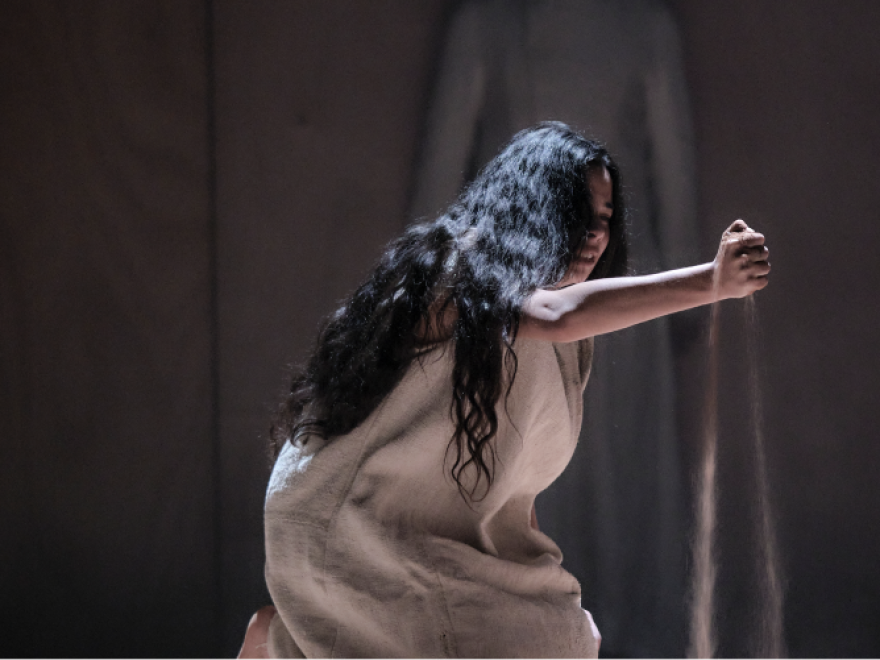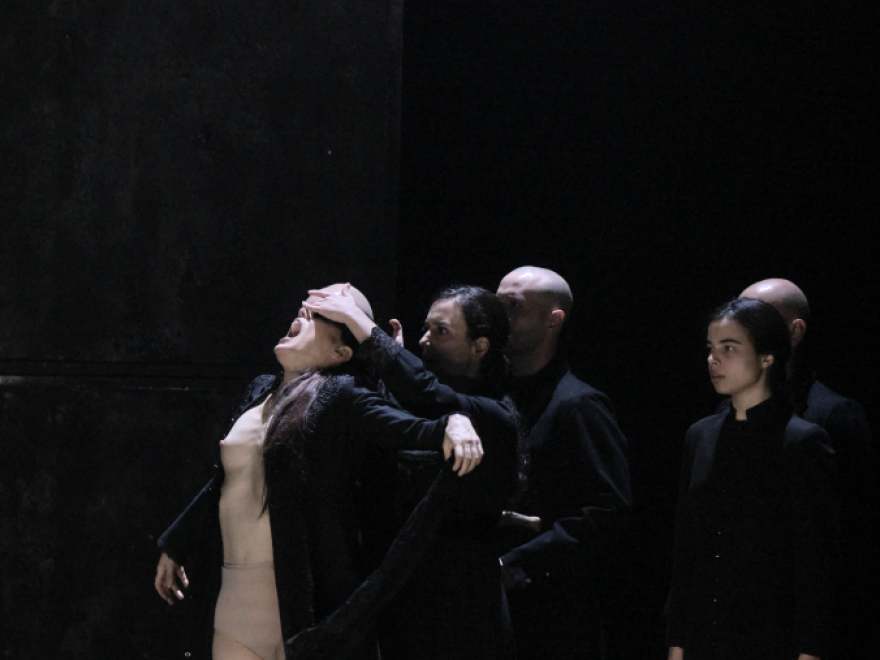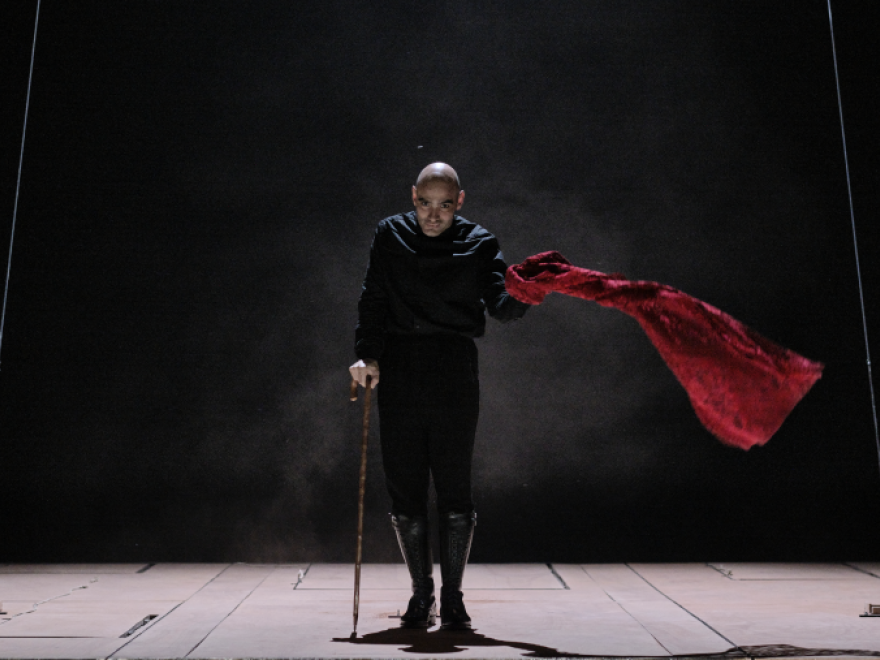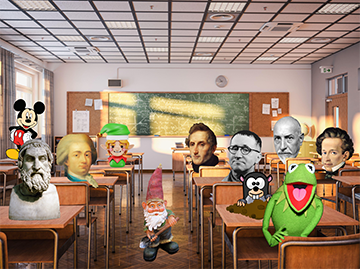«In an era characterised by ruins, the only possibility was to work with what remained, to blow on the ashes to rekindle the flame»: Alessandro Serra rewrites the legend of Oedipus for contemporary audiences, using the ancient text as a way to connect to a higher, collective form of knowledge. A blind, exiled hero, the King of Thebes embodies the condition of contemporary humankind.
-
Teatro Strehler
Against a backdrop of a city reduced to a flicker, arid, sterile, decomposing, Sophocles guides the audience to explore the story of a man who has the supreme courage to attempt to discover himself. How can the legend of Oedipus be brought into modern times? How can Sophocles be rendered accessible to all? How can we mourn for the loss of the polis and of the sacred?
«Italian – explains Alessandro Serra – seems to reduce tragedy to dramatic fact. We chose to work with Calabrian Greek, a language that is still spoken in a remote corner of what used to be Magna Graecia, a strip of land rising from the sea to climb Aspromonte, gazing towards the horizon and to Etna.»
Il canto di Edipo rises from the rubble of classic tragedy to explore the ruins of contemporary society, rediscovering the voice of the polis and rituals, in search of lost collective knowledge.
The show includes scenes of partial nudity, and makes use of stroboscopic lights
A show in Calabrian Greek with surtitles in Italian
The visibility of the surtitles is limited up to row 4 of the stalls
Duration: 80’ without intermission
Learn more
Booklet
ReadAgainst a backdrop of a city reduced to a flicker, arid, sterile, decomposing, Sophocles guides the audience to explore the story of a man who has the supreme courage to attempt to discover himself. How can the legend of Oedipus be brought into modern times? How can Sophocles be rendered accessible to all? How can we mourn for the loss of the polis and of the sacred?
«Italian – explains Alessandro Serra – seems to reduce tragedy to dramatic fact. We chose to work with Calabrian Greek, a language that is still spoken in a remote corner of what used to be Magna Graecia, a strip of land rising from the sea to climb Aspromonte, gazing towards the horizon and to Etna.»
Il canto di Edipo rises from the rubble of classic tragedy to explore the ruins of contemporary society, rediscovering the voice of the polis and rituals, in search of lost collective knowledge.
The show includes scenes of partial nudity, and makes use of stroboscopic lights
A show in Calabrian Greek with surtitles in Italian
The visibility of the surtitles is limited up to row 4 of the stalls
Duration: 80’ without intermission
Learn more
Booklet
ReadCredits
Tragùdia
Il canto di Edipo
loosely based on the works of Sophocles and mythical stories
direction, sets, lighting, sound, costumes Alessandro Serra
translation into Calabrian Greek Salvino Nucera
with Alessandro Burzotta, Salvatore Drago, Francesca Gabucci, Sara Giannelli, Jared McNeill, Chiara Michelini, Felice Montervino
voice and song Bruno de Franceschi
stage movement collaborator Chiara Michelini
sound collaborator Gup Alcaro
lighting collaborator Stefano Bardelli
costume collaborator Serena Trevisi Marceddu
technical director Giorgia Mascia
sound technician Alessandro Orrù
stage director Luca Berettoni
set construction Daniele Lepori, Serena Trevisi Marceddu, Loic Francois Hamelin
a Sardegna Teatro, Teatro Bellini, Emilia Romagna Teatro ERT / Teatro Nazionale, Fondazione Teatro Due production
in collaboration with Compagnia Teatropersona, I Teatri di Reggio Emilia
distribution: Sardegna Teatro – Danilo Soddu
The show includes scenes of partial nudity, and makes use of stroboscopic lights
A show in Calabrian Greek with surtitles in Italian
The visibility of the surtitles is limited up to row 4 of the stalls
Tickets
Category of performance Hosted Shows
Stalls full price € 33 | Discounted (under 26 and over 65) € 21
Balcony full price € 26 | Discounted (under 26 and over 65) € 18
Subscriptions
The performance is available for subscription holders
To purchase a subscription online, click here
How and where to purchase
For information, click here
Organised groups and audiences
For information on tickets for organised groups:
tel. +39 02 72 333 216
email promozione.pubblico@piccoloteatromilano.it
